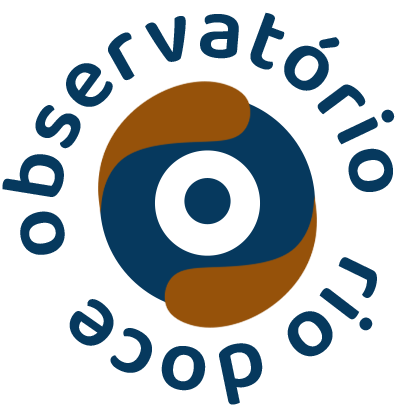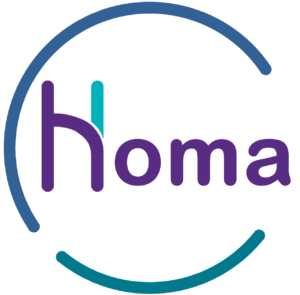

Who we are
Rio Doce Observatory is a collective articulation formed by several organizations in the civil society, social movements and academic groups with an activity directly related to Samarco’s disaster-crime. It was created from the verification of the continued violations to the rights of the damaged communities all over the Rio Doce Bay and the coast which were affected by the disaster. Relevant factors of insecurity to the damaged population are the absence of a conclusion to the promised settlings, the massive increase in mental, respiratory and other diseases as a consequence of the burst; the situation of food insecurity lived by the families who depended on fishing and agriculture; the complete dependence on the insufficient and constantly threatened payments of emergency financial aid, among other situations.

Our goals
-
- To build a collective articulation for the case, bringing different sectors of society and their national representatives (academia, religious institutions, NGO’s of human rights and environmental activity, etc.);
- To monitor the institutional unfolds of the case, among them the renegotiation led by the Observatory of Disasters of the National Justice Council (CNJ), scheduling meetings, analysing documents, trying to allow the damaged people and their organisations to have easier access to information and to the discussion spaces.
- To produce information about several aspects of the damages caused by the Fundão dam burst, and to give national and international visibility
What we defend
The just and integral reparation owed by the companies involved to the people and communities damaged by the disaster-crime which happened in Rio Doce Bay.
Who can participate in this initiative
Organisations and collectives of the civil society, and groups of academics who wish to get involved with the defence of the interests of the communities damaged by Samarco’s disaster-crime, and who are not involved in any way with the mining companies, including with the receiving of payment from them.
How we organise ourselves
The Observatory is articulated in a network of cooperation between its groups, acting in several damaged territories which share information about the facts related to the reparation process, aiming at understanding the reality and building strategies for the damaged population collectively.
What happened to the agreements in Rio Doce?
After successive agreements of consent decree made between the companies and the legal institutions, many reparation programmes which should be conducted by Renova Foundation have stopped or have not even begun. Many procedures like hiring independent technical assistances were not integrally established by the companies. In practice, the companies do not respect the agreements signed between them and the legal institutions, and those institutions have not been able to force them to follow the agreements. The cuts in the emergency financial aid and the low indemnities of the new simplified indemnity system create a scenario of vulnerability in the communities. Several dimensions like health, environment and maintenance of a lifestyle are not considered in the execution of those agreements.
What we defend as guidelines for a renegotiation
So that a renegotiation may be possible, it is necessary to have a great and well-informed participation of the communities. Likewise, there are meta-individual rights which cannot be negotiated, and it is the duty of the State to assure an integral and complete reparation. Still, the guarantee of a wider debate in the communities, the collective construction of a new agreement are key aspects for its effectiveness.
Until the present moment, as a consequence of a collective effort of dialogue with the communities, we point out the following general guidelines to advance in the reparation:
- Programme of income transference with resources destined to combat social vulnerability and guarantee the basic survival conditions to the damaged families until the integral reparation;
- Funds for Regional Development with investments to secure work conditions in farming and ranching, in the fishing chain and other activities, paying special attention to women, black people, indigenous people, people with special needs, children, teenagers and elderly people through a fund for Rio Doce’s streambed and the coast of Espírito Santo;
- Independent technical assistance with autonomy and capacity to manage the demands, besides contributing in the elaboration and supervision of effective reparation projects in each damaged town, securing an informed participation of the families.
- Instruments of popular participation which allow a real involvement of the damaged people, decentralising the decision spaces presently concentrated in the Federal Justice, and strengthening the damaged people organised in collective initiatives with the due supervision of technical assistances;
- Development, implementation and execution of measures which make possible the continuity of the life projects and works not yet considered in the lawsuits already created, implemented and executed.
- Maintenance of financial aid to the damaged population while all the reparation programmes to be presented by Renova Foundation are not concluded.
Members of Rio Doce Observatory
Rede de Pesquisa Rio Doce | CRDH, GEPSA, Homa, Organon e PoEMAS
Movimento dos Atingidos por Barragens (MAB)
Amigos da Terra
Justiça Global
Terra de Direitos
Associação Brasileira de Juristas pela Democracia (ABJD)
Rede de Advogados e Advogadas Populares (RENAP)
FIAN BRASIL – Organização pelo Direito Humano à Alimentação e à Nutrição Adequadas
Laboratório de Educação Ambiental e Pesquisa – LEASAUEPAS/DEGEP/DEPRO/UFOP
